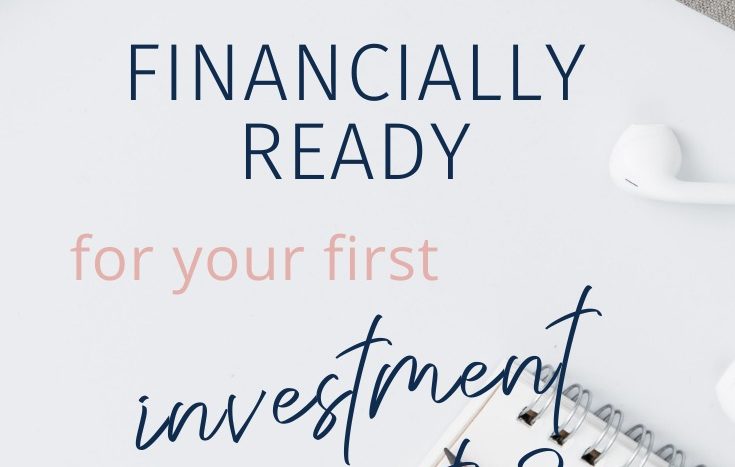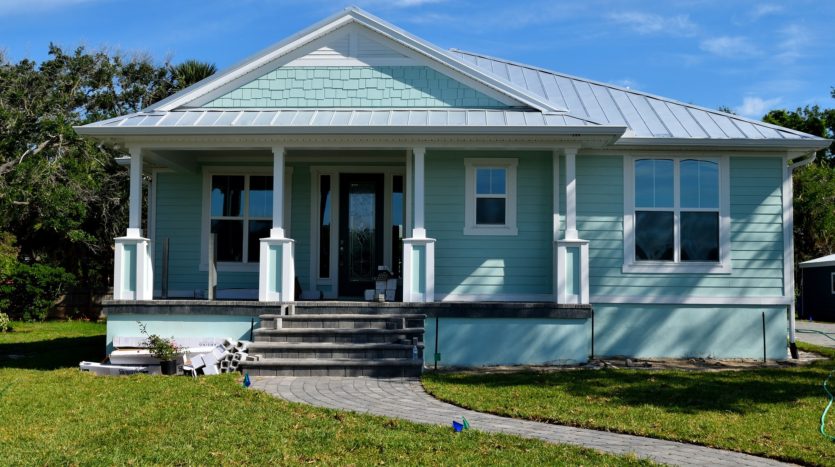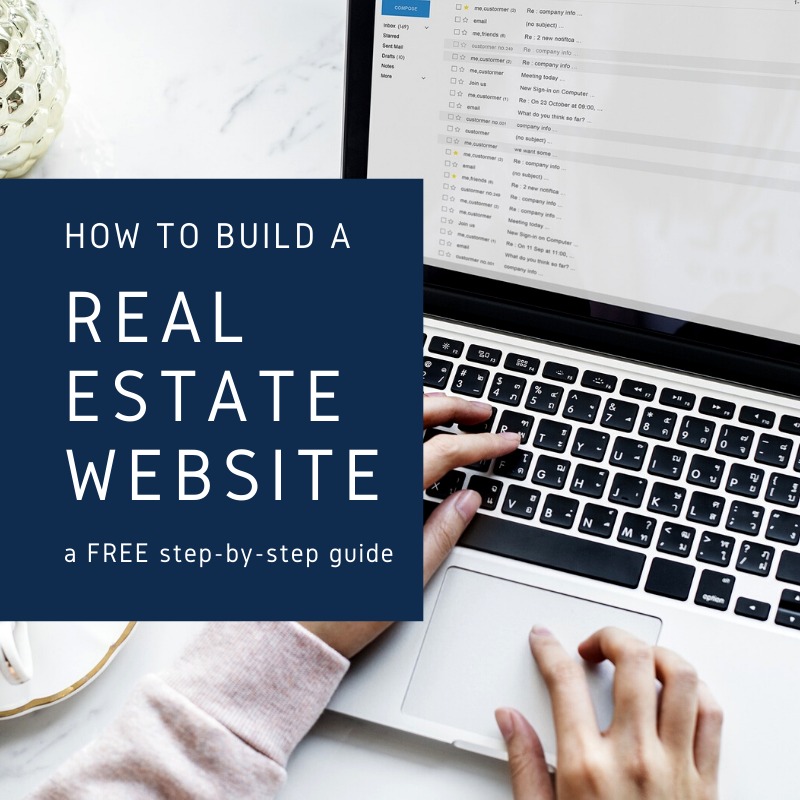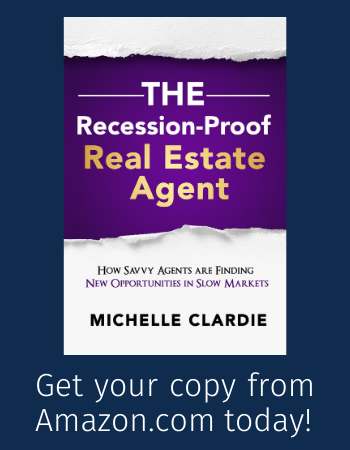How do you know when you’re financially ready to tackle your first investment property? That’s the question we’re going to answer together today.
Qualifying for an investment property is different than qualifying for a primary residence. If you’ve worked with investor-buyers, you’re probably familiar with some of these key differences. But, for anyone who hasn’t done many deals for investors, we’ll cover the basics in this post.
It all starts with the lender’s view of investment properties as riskier loans than primary residences. The thinking is that borrowers will do everything in their power to protect their primary residence when finances get tight. But they might be willing to make some late payments on their investment properties. Or even let their investment properties slip into foreclosure to make ends meet on their primary residence.
So your finances will be held to a higher standard for an investment property than they would be for your first home as a primary residence.
One more note before we jump in: for first-time investors, I usually recommend buy-and-hold long-term residential rentals. Flips are more unpredictable, and commercial investments are more complex. So we’ll be talking specifically about buy-and-hold residential rentals. We’re also writing this post specifically with long-term rentals in mind. Short-term vacation rentals require a lot more active management. So long-term rentals are a better starting point for new investors.
Ok, having said that, here are 4 key questions to ask yourself to determine if you’re financially ready for your first investment property.
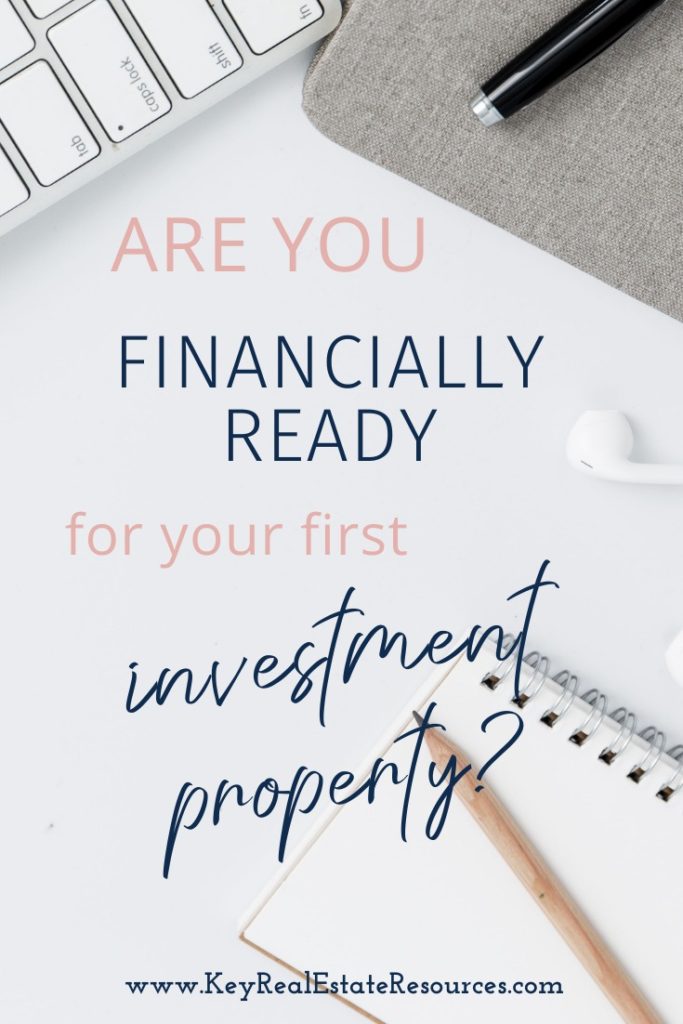
1. Do I Make Enough Money (And Can I Prove It)?
Perhaps the most important factor in deciding if you’re financially ready for your first investment property is your income.
You may not be terribly concerned about your income because you’re confident you can rent the property for far more than the monthly mortgage expense. Otherwise you probably wouldn’t be buying an investment property, right? You expect your renters to cover the mortgage and put a little extra money in your pocket every month. So why should your current income matter so much?
The Investor’s View of Expenses
There are several expenses for you to consider as the investor.
First, your monthly expense will be more than just the mortgage.
As you know, in addition to the principal loan repayment plus interest you pay every month on your mortgage, you’ll also be responsible for homeowner’s insurance and property taxes. These add hundreds of dollars on top of your monthly mortgage payment.
Then there’s maintenance and repairs. Maintenance and repairs are very difficult to estimate because they partly come down to luck: what crazy thing will go wrong with the house, and will the timing be just wrong?
A very general rule of thumb is to expect annual maintenance costs to equal 1% of the property value. If your property is valued at $200,000, you can expect to spend $2,000/year on maintenance and repairs. So if you set aside $167 every month, you’ll be more-or-less prepared to handle those expenses as they arise.
Then you need to consider vacancy. What do you do if your tenants move out and you can’t find a replacement right away?
The Lender’s View of Expenses
Lenders are always worrying about the worst-case scenario. They need to do everything they can to be as sure as possible that you will repay your loan with interest as expected.
That vacancy issue we just mentioned, they’re very worried about that. Lenders need to confirm that you make enough money to cover all your existing expense commitments (your mortgage or rent on your primary residence, car payments, student loans, etc.) plus this new investment property mortgage in case you find yourself without renters for an extended period of time.
And it’s not enough to simply make enough money to cover these expenses. You have to be able to prove it to the lender. You need documentation of enough consistent income to appease the lender.
This means inconsistent income (like commission-only real estate agents) will be viewed less favorably than salary-based income for loan-qualification purposes.
2. Do I Have Acceptable Credit?
Credit is exceptionally important in determining whether you’re a good candidate for an investment property loan. It plays a large role in qualifying you for a loan and in getting you a good interest rate on that loan.
In the simplest terms, your credit record shows your history of accepting loans and repaying those loans. The loans could be as significant as a mortgage on your primary residence. Or as seemingly-ing insignificant as a credit card or cell phone plan.
There are 5 main factors that affect your credit score:
- Your payment history: late pays and missed payments will negatively affect your score.
- Your debt: lenders want to see that you’re not over-extending yourself even if you technically could. They want you to be pre-qualified for a large amount of debt, but not actually use it. Credit cards are a perfect example. If you have a $10,000 credit limit, but only have a $500 balance, it indicates self-control.
- The age of your credit history: the longer your accounts are open, the more evidence is available to prove that you consistently pay on time year-in and year-out. So it might be tempting to close your credit card accounts as you pay off the cards, but that would actually hurt your credit score.
- Types of debt: is most of your debt student loans? Or credit cards? These are treated differently. Student loans are considered “good debt”. They represent a financial investment in your future earning power. Large credit card debt is seen as frivolous and irresponsible.
- Credit inquiries: too many credit inquiries (companies running credit checks at your request) during a one-year period is a red flag, and it slightly reduces your credit score. The logic is that you’re trying to accumulate multiple loans which could over-extend your ability to repay them all. This is one of the reasons you don’t want to apply for credit cards or other loans while you’re trying to secure financing for a mortgage.
Credit Standards For Investment Properties
While some lenders are willing to work with less-than-stellar credit on a home loan for your primary residence, lenders all have higher standards when it comes to investment properties.
As mentioned in the beginning, lenders are reasonably sure borrowers will do everything they can to save their family home from foreclosure. They are less certain borrowers will go to great lengths to avoid foreclosure on an investment property.
While standards vary by lender, you should have at least a 720 credit score to seriously consider getting a loan on an investment property.
And if you’re credit isn’t great, remember that even if you can find a lender willing to give you a loan, the interest rate will be higher than it would be if you had great credit. That higher interest rate might make the investment less appealing.
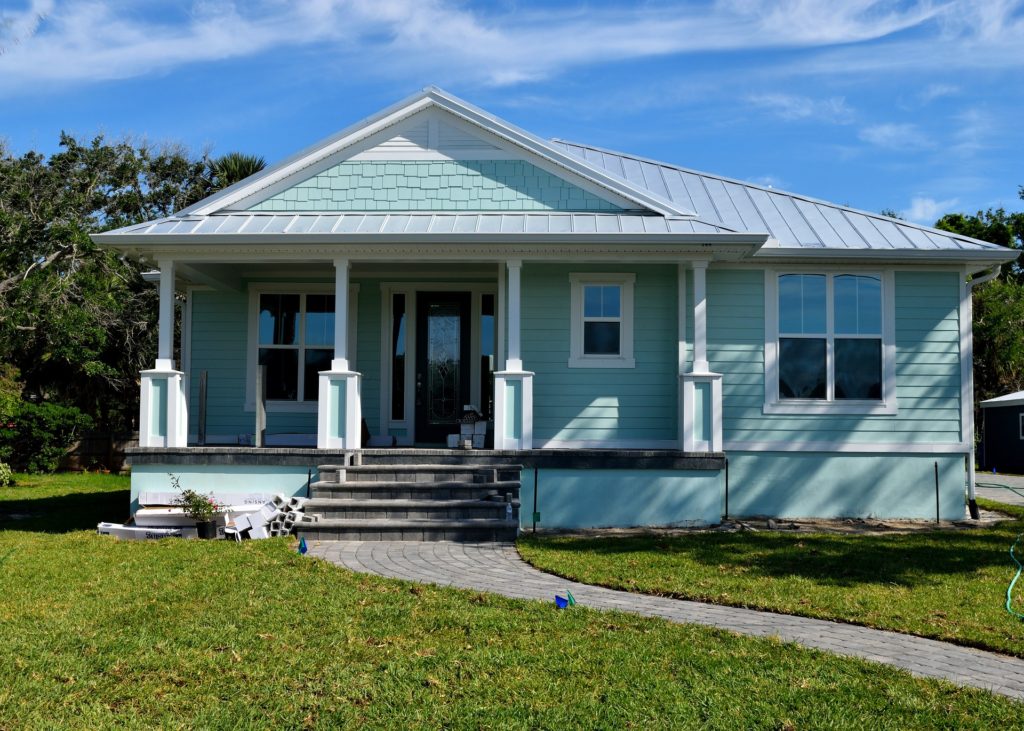
3. Do I Have Enough Liquid Savings?
In addition to your income and credit, you’ll need to have enough cash available to purchase an investment property.
There are several low-down-payment loans available to people buying a primary residence. That is not the case with investment properties.
Again, it’s simply riskier for a lender to loan money to an investor than to a normal home-buyer. Mortgage insurance (which allows buyers to put less than 20% down on their primary residence) doesn’t apply to investment properties. So you likely need to have enough money available to put at least 20% down. And 25% down may get you a better interest rate.
Quick side note: If you’ve gotten into the cryptocurrency craze, there are a couple of ways you can use your crypto to buy your investment property.
Costs in Addition to the Down Payment
And of course the down-payment is just the beginning. You’ll be paying all the standard closing costs: appraisals, inspections, taxes, insurance, title searches, and loan origination fees. You know your local market far better than I do, but most buyers should expect to pay somewhere between 2-5% of the purchase price in closing costs.
Then there are upfront repairs, renovations, and the holding costs until tenants move in.
Most homes need some cosmetic updating to ready them for the rental market. You may need to repaint, update fixtures (lights, faucets, and doorknobs), and install new flooring. Or you may need a full to-the-studs renovation (but maybe save those for the experienced investors!). You’ll most likely have at least a few weeks before your new tenant can move in and start paying rent. So you’ll need to cover the mortgage, taxes, and insurance during that unoccupied time.
Lastly, you need to have liquid funds available for surprises. There is a lot that can go wrong at an investment property without warning: plumbing, electrical, HVAC…The property owner needs to be financially prepared to handle the unexpected.
If you’re looking at this list of upfront costs, thinking there’s no way; why would anyone even buy an investment property? Keep something in mind: this is why real estate investors earn great returns and make solid passive income. They are willing to put in the work and the money upfront to reap benefits for decades to come!
4. Am I Financially Stable?
The final piece of the puzzle is financial stability.
If you’ve been able to answer “yes” to the first 3 questions, you now need to honestly evaluate your situation for any indication that any of those answers could change in the near future.
Is your income reasonably stable? How long have you been at your current job? What are the chances your income could decrease in the next year or two?
Is your credit stable? Are you protecting yourself against identity theft or credit fraud? Is there anything on the horizon that could dramatically impact your credit score?
Are your liquid savings stable? Do you have any large expenses coming up that will seriously reduce your savings? Do you have a separate emergency savings fund so your investment property savings won’t be depleted because of an unexpected expense?
The bottom line is that investment property is an investment. You need to be financially prepared to be a successful investor. Real estate is a fantastic investment over time, but it’s only available to those willing to put in the upfront work and upfront funding.
Ready to learn more about investing in real estate? Check out our Top 3 Books to teach you how to invest in real estate.
Get Your Complete Recession-Proof Guide!
If you’re serious about growing your real estate business during a slow market, check out The Recession-Proof Real Estate Agent. This book offers a complete step-by-step guide to recession-proofing your real estate business.


